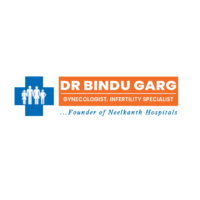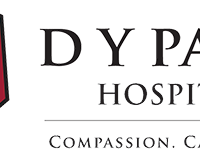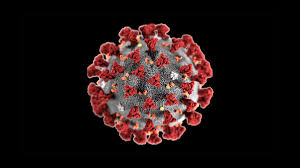Basic Details
| WINGS IVF Women’s Hospital | |
| siachen.com/wingsivfwomenshospital | |
| Private Limited | |
| Jayesh Amin | |
| 2005 | |
| 70 Employees | |
| IN | |
| GJ | |
| Ahmedabad |
Communication
| 17, Sunrise Park, Himalaya Mall to Vastrapur Lake Road,Bodakdev, Ahmedabad Gujarat, India -380054 | |
| +91-787-8777222 | |
| +91-982-5050565 | |
About Business
Business Summary
WINGS Hospital is a leading chain of Infertility hospitals based out of Gujarat and Rajasthan
Business Description
WINGS Hospital is a leading chain of Infertility hospitals based out of Gujarat and Rajasthan with special focus on IVF, Male Infertility, Advanced IVF Techniques, Endoscopy and high end maternity.
We provide every person entering our doors at WINGS Women's Hospital with thorough and personalized care. An interdisciplinary team of experts and professionals is committed to addressing all families ' physical and emotional needs. WINGS Women's Hospital is designed and equipped to provide comfort and privacy for a high degree of fertility care. The first IVF therapy laboratory with an independent replacement department in India has been set up in our hospital.
We have a separate dedicated Endoscopy department with a dedicated Endoscopy Consultant team to treat surgeries. We have a separate maternity unit and expert consultants to treat high risk pregnancies. He has passed MBBS and MD from M.P. Shah Medical College, Saurasthra University. He has accomplished his fellowship for IVF and Embryology by LARS Johnson, Sweden and he is a member of Gujarat ISSAR Chapter, ESHERE, IAGE. Dr. Jayesh Amin is a national and international faculty at various fertility conferences in India and abroad. Dr.Jayesh Amin has been awarded as a Times of India- IVF icon for 2018 & 2019, Excellence in Infertility treatments by the then Union Health Minister Shri.J.P.Nadda & Fertility Game Changer (West)-2019 by Economic Times.
His prime area of interest include trouble shooting complex infertility, recurrent IVF failure cases, application of latest technologies in the field of IVF & role of genetics in IVF treatments.
Photo & Video Media
Corporate Business Video
Products / Services
Services
Searchers Benefit:
- IVF Center in Ahmedabad
- IVF in ahmedabad
- Best ivf center in ahmedabad
- IVF hospital in ahmedabad
- best ivf hospital in ahmedabad
- IVF Treatment in Ahmedabad,
- Best test tube baby center in ahmedabad
Platform Enhanced Sections and Articles
Article by Siachen Editors to aid the customer in decision making
BRING GOOD NEWS AT HOME THROUGH IVF TREATMENT
Contents
Contents
- Evaluation of Ovarian Reserve
- Semen Analysis
- Uterine Cavity Exam.
- Embryos for Transfer
- Multiple Pregnancies
- Extra Embryos
- Other Issues. 5
In Vitro Fertilization Process Working
- Ovulation induction
- Egg extraction
- Transvaginal Ultrasound Aspiration
- Sperm Retrieval
- Fertilization
- Embryo or Blastocyst Transfer
- Provide Better Hope
- Ability to choose embryos
- High success rate
- Diagnose fertility problems
- Flexibility. 9
Major Tips to Increase Your Chances of IVF Success
- Do Some Research
- Avoid Ejaculation
- Consume Good Fats
- Meditation and De-stressing0
- Say NO to Low Glycemic Index Foods
- Talk to a Counsellor
- Avoid Vigorous Exercise
- Take Plenty of Sleep
- Maintain a Healthy Weight
- Quit Smoking
- Take the Prescribed Supplements
IVF is a process that is done in a laboratory vessel, test tube under the controlled experimental setting. In easy terms, in vitro fertilization is a fertility treatment where sperm and eggs are combined in a lab to form embryos, and placed in the uterus through the cervix to enable conception of an IVF baby. Nowadays, this treatment is considered to be the most commonly used fertility treatment.
Picture is courtesy of Futurism.com
& Article - Women Can Now ‘Grow’ Their Own IVF Embryos with In-Body Incubator
IVF Treatment Procedure
This medical procedure is basically used to treat fertility or genetic problems and help in the conception of a child. You might go for less invasive treatment options before IVF. These also include medications to increase the production of eggs or intrauterine insemination, a procedure in which sperm is placed in your uterus around the time of ovulation.
If you have failed to conceive after other treatments then you must try IVF treatment. In IVF procedure you would be required to follow during the course of the treatment. First, you should know that the procedure is done using your own eggs and your partner’s sperm. In some cases, it may also involve eggs, sperm, or embryos from an anonymous donor. There are also cases where a gestational carrier, a woman who has an embryo implanted in her uterus might also be used.
Before IVF treatment, both partners have to undergo the following screening tests:
1. Evaluation of Ovarian Reserve
This test will determine the quantity and quality of your eggs. You have to undergo certain tests which determine the concentration of the follicle-stimulating hormone during the first few days of the cycle. These tests may be combined with an ultrasound of ovaries to predict the ovaries’ response to the fertility medication.
2. Semen Analysis
In this, your partner might be asked to take a semen analysis test before IVF treatment. This test helps to analyze the health and viability of sperm and also includes the number, shape, and movement. A couple might also have to take screening tests for infectious diseases, including HIV.
3. Uterine Cavity Exam
This helps the doctor to examine the uterine cavity or space inside of the uterus. A healthy uterine cavity is essential to conceive and maintain a pregnancy. With this, there are some important points to consider as a couple and discuss them with the doctor before taking going through the IVF treatment cycle.
4. Embryos for Transfer
The number of embryos that get transferred during the treatment depends on the age and number of eggs. Since the rate of implantation is generally low for older women (above 35 years of age) therefore, more embryos are usually transferred to increase the likelihood of conception. This often happens except in cases where donor eggs are being used.
However, in a few countries, there is a limit to the number of embryos that can be transferred in one IVF cycle. This is because of some studies that indicate implanting multiple embryos at one time can lead to complications for both mothers and babies. This may also increase the likelihood of multiple gestations. So, you need to discuss it with your doctor and decide on the number of embryos to be transferred before the procedure.
5. Multiple Pregnancies
You need to know it if more than one embryo is transferred to your uterus, the IVF treatment can lead to multiple pregnancies. To avoid such type of situation, some people opt for fetal reduction. This can help a woman to minimize the chances of complications and give birth to a healthy baby.
6. Extra Embryos
What do you want to do with the extra embryos during the treatment? You can either choose to discard or keep it frozen for future use. However, there is no assurance in this that embryos will endure the freezing process. Therefore, it is recommended to discuss this with the doctor and follow their advice.
7. Other Issues
You need to understand the complications arising out of donor eggs, sperm, or embryos from a gestational carrier. For this, you should consult a counselor with expertise in donor issues who can thoroughly explain the process. You may need an attorney to file court papers to help you become legal parents of an implanted embryo.
In Vitro Fertilization Process Working
In IVF there are a number of stages that the couple has to pass through before being able to conceive. Let’s look at the procedure to understand the complexities of the process.
1. Ovulation induction
This is basically the initial phase of your treatment. If you’re using your own eggs, then you will be treated with synthetic hormones to stimulate the ovaries for producing multiple eggs instead of using the single egg that develops every month. It is important to have multiple eggs as some eggs might not fertilize or develop after fertilization.
For this, the doctor could prescribe medication at different stages of the treatment:
- Ovarian stimulation
For stimulation of the ovaries, you need to take injections containing a follicle-stimulating hormone and a luteinizing hormone or a combination of both. This will help in producing multiple eggs at a time.
- Oocyte maturation
After the eggs are formed the follicles are ready for egg retrieval. This happens between eight to 14 days and you are prescribed medications to help the eggs mature.
- Premature ovulation
You might not be asked to take medications that could prevent the body from releasing the developing eggs too soon.
- Lining of your uterus
Some sets of medications may be prescribed on the day of egg retrieval or at the time of embryo transfer. You will be given progesterone supplements to prepare the lining of the uterus, and make it receptive to implantation.
In this, your body might take 1-2 weeks for ovarian stimulation before the eggs are retrieved. During your medications, you will first have to be checked by the doctor every 2-3 days for blood hormone levels. You may also need to go for an ultrasound for measurements of ovaries. This will help to keep track of the growth of the follicles (the fluid-filled sacs where eggs mature) and to determine if the eggs are ready for collection.
At this stage, IVF may be canceled for reasons such as an insufficient number of follicles developing, premature ovulation, or too many follicles which further creating the risk of ovarian hyperstimulation syndrome. If your cycle doesn’t progress, then the doctor might recommend changing medications or doses to support a better response in future cycles.
2. Egg extraction
After follicles get ready, you are given an injection that will help the eggs to mature fully and prepare them well for fertilization.
3. Transvaginal Ultrasound Aspiration
Before you undergo any transvaginal ultrasound aspiration, the procedure of retrieving eggs, you will be first sedated through medication. In this, an ultrasound probe is inserted into your vagina to identify follicles. A thin needle into an ultrasound guide to go through the vagina and into the follicles for retrieving the eggs.
The matured eggs are then collected and are kept in a nutritive liquid and incubated. Eggs that appear healthy and mature will be infused with sperm to create embryos.
4. Sperm Retrieval
After all this, now it's your partner’s turn. He will be asked to provide a semen sample the same morning when egg retrieval is to be carried out. In some rare cases testicular aspiration, the needle or surgical procedure is done to extract sperm directly from the testicle. After this, the sperms are then separated from the semen fluid in the laboratory.
5. Fertilization
Now it’s the time for your eggs to go through the most important phase i.e, fertilization. It is carried out through two popular methods. The first method is insemination, in which healthy sperm and mature eggs are mixed and incubated overnight. The other is intracytoplasmic sperm injection (ICSI) in which a single healthy sperm is injected directly into each mature egg. This is often used in cases when semen quality or number is an issue or if the fertilization attempts during previous IVF cycles have not yielded fruitful results.
6. Embryo or Blastocyst Transfer
The next stage is at the three-day mark when some eggs are fertilized and transform into multi-celled embryos. Within two more days, they further metamorphose into blastocysts. At this stage, they will develop a fluid-filled cavity that will ultimately separate into the placenta and baby.
After you have passed through the above process, you will reach the stage where the embryo can be finally transferred into your womb. This is done after 2-6 days from egg retrieval. Here also, you will be given a mild sedative. The procedure is generally painless when the doctor will insert a long, thin, flexible tube into your vagina. A syringe having one or more embryos suspended in a fluid is attached to the end of the catheter. If successful then an embryo will implant in the lining of your uterus is around six to 10 days after egg retrieval.
Advantages of IVF treatment
IVF is the reproductive technique that includes a 4 step process. Simply, it consists of ovulation induction followed by egg retrieval. The egg is then fertilized in the laboratory and then transferred to the mother’s womb. IVF Treatment has a variety of benefits such as:
1. Provide Better Hope
There are many patients who are still facing the fallouts of infertility and IVF brings hope in them. Blocked fallopian tubes are some of the major reasons for difficulty in getting pregnant for women, especially without the help of a specialist. Some specialists focus on fertility treatments including IVF. Another major cause of difficulty in getting pregnant is a low sperm count in men. If the count is low then low sperm motility makes it difficult to fertilize the egg. Through IVF, the fertilization of the egg takes place in a lab, not inside the body.
2. Ability to choose embryos
The best thing which makes IVF treatment different is that parents choose the embryo used to get them pregnant.IVF treatment gives the provision to test the embryos for any abnormalities or conditions. The procedure called pre-implantation genetic screening to ensure that patients can rest assured about genetic disorders and abnormalities.
3. High success rate
IVF has a high chance of success rate with the low multiple birth rate of any reproductive technology. While it may not always take in the first shot, IVF treatment allows for the procedure to be repeated under optimal circumstances. It has one of the top success rates amongst all reproductive technologies.
4. Diagnose fertility problems
There are a lot of couples that suffer from infertility and on many occasions it is unexplained. IVF treatment helps couples understand the issue behind fertilization including blocked tubes, low ovarian reserve, male infertility, etc. Such cases may not get diagnosed until fertilization is actually attempted in the lab.
5. Flexibility
IVF can be used by anybody. couples with infertility, couples with genetic disorders, single women, same-sex couples, etc. A big advantage of IVF is that it allows for total control over the timing of the patient. The egg and sperm can be preserved for further use. Depending upon the period, patient wishes to get pregnant, the best time to proceed with IVF can be determined.
Major Tips to Increase Your Chances of IVF Success
For the couples who have decided to take the IVF-route to start a family, the primary question of them is ‘how successful is IVF?’. The proper answer to this is quite difficult as the IVF success rate depends on several factors such as infertility, age, etc. Younger women with healthier eggs have higher chances of success in IVF. According to a study, the first successful cycle of IVF is about 30% to 40% for women aged 34 and below. Besides embryo status, reproductive history, lifestyle factors such as smoking and obesity are also factors contributing to the success of IVF.
Here are some helpful IVF success tips:
1. Do Some Research
Selecting a good IVF center also contributes to improving your chances of a pregnancy. Clinics differ on the basis of their technicians’ skills and also the conditions in which the embryo grows, etc. Make a list of all the clinics that offer IVF and find out these details before settling upon one:
- Pregnancy ratio per embryo transfer
- Pregnancy rates for couples of your age and with your fertility problem
- Accreditation of the clinic and board-certification of the physicians
- Cost of the IVF procedure
- How long the embryos stored
- How many successful pregnancies include twins or multiple births
2. Avoid Ejaculation
Your partner shouldn’t ejaculate for 3-4 days before the sperm donation. Refraining from sexual intercourse and masturbation will increase the sperm count and also increase the chances of a successful IVF. It’s very important to get the semen analyzed before the process as the sperm quality can change over time.
3. Consume Good Fats
In a recent study, it is found that consumption of foods rich in monounsaturated fats helps the women to get pregnant through IVF methods. The good fats are known to protect the heart, lower inflammation in the body, and improve fertility. Therefore, eat plenty of foods rich in monounsaturated fats. These food include avocados, nuts and seeds, sunflower oil, and olive oil.
Along with improving fertility, monounsaturated foods also help in the development of the fetus. In another research, it has shown that women who take a rich diet of saturated fats that are found in butter and red meat produced fewer eggs that were healthy enough to use infertility treatment. Therefore, you can add these as part of your IVF success tips diet. This is not guaranteed to give you success in pregnancy but it can definitely boost your chances of a successful attempt.
4. Meditation and De-stressing
In women, stress always adversely affects the reproductive system and lessens the chances of IVF success. During IVF treatment, it is normal to worry about whether fertility treatment is working or not. However, you need to find time to de-stress yourself too. Meditation helps to remove stress. It involves gentle breathing techniques that can greatly reduce stress and allow your body to function to the optimum.
5. Say NO to Low Glycemic Index Foods
The glycemic index (GI) is a rank given to classify foods depending on how easily they get digested in the body. The foods with lower GI get digested slowly thereby ensuring a gradual yet steady supply of energy. This is important for maintaining healthy blood glucose levels and reducing weight. Some foods such as Legumes, whole grains, low-fat dairy products, broccoli, sweet potato, and mushrooms come under this category.
Some processed foods and their associated oils and sugars have a high GI which is bad for the body. They elevate inflammation and affect hormone levels in the body which also negatively affect the immune system. Alcohol is a factor that induces malformations in the fetus and severely detrimental to the development of the fetus. Therefore alcohol must be avoided at all costs.
Also, along with alcohol, you must avoid smoking. If you have an addiction towards them, it is important to talk to your doctor before going for IVF treatments. Also, caffeine is also found to adversely affect the developing fetus.
6. Talk to a Counsellor
IVF can affect your emotional well-being so be prepared for the roller-coaster ride. Talk to a counselor about your fears. You must also ensure that your spouse, close friends, and family support you throughout the entire process as you need them the most.
7. Avoid Vigorous Exercise
It is preferred to do some exercise in pregnancy to maintain good health but vigorous exercise can reduce fertility levels in women and also decrease their rates of conception. Heavy exercise is likely to cause implantation failure and pregnancy loss. Therefore choose for low-intensity exercises in your IVF procedure such as walking, yoga, or swimming.
8. Take Plenty of Sleep
You should follow a normal sleep cycle at least two weeks preceding the IVF appointment. Go to bed early and ensure that you get at least 8 hours of sound sleep. Sleeping in total darkness helps to regulate the melatonin levels in the body and improve your physical and emotional well-being.
9. Maintain a Healthy Weight
Weight plays a major role in IVF. Your Body Mass Index (BMI) influences the chances of IVF success. Being obese, BMI>35 or underweight, BMI<19 can increase the difficulty of conception by 2 - 4 times respectively. Being overweight and underweight can lead to complications with the procedure. If you are either underweight or overweight then you must make changes to your diet and lifestyle. You can also enroll in a cardio program that can help you.
10. Quit Smoking
Smoking broadly affects the quality of the egg and the sperm. It broadly brings down the chances of conception through IVF. Try to consult your healthcare advisor and with support from family and friends, try to quit smoking for yourself and your baby.
11. Take the Prescribed Supplements
Your doctor can prescribe you some useful supplements. Some medicines help to improve the quality of both the sperm and the egg. Vitamin D supplements are also helpful in this.
Last five profiles from the category:
-

Dr. Bindu Garg – Best IVF Doctor in Gurgaon and the Head of the IVF Department at Neelkanth Hospital; Years of Remarkable Experience in Gynecology, Obstetrics, and Infertility Treatment – Gurgaon, India.
siachen.com/drbindugarg
Mehrauli-Gurgaon Rd, near Guru Dronacharya Metro Station, DLF Phase 3, Gurugram, Haryana, India. land_line : +917669054615 -

D Y Patil Fertility Centre – Bloom Fertility Centre is one of India’s Largest Single Owned IVF unit located in Mumbai, Navi Mumbai, Delhi, Gurgaon, Chandigarh – Navi Mumbai, India.
siachen.com/dypatilivf
D Y Patil Hospital Ayyappa Rd, Dr D Y Patil Vidyanagar, Sector 5, Nerul, Navi Mumbai, Maharashtra 400706, India. land_line : +91-987-1717305 -

Secunderabad Women’s Hospital (SWCIC) – Leading fertility clinic offering cutting-edge treatments – Secunderabad, Telangana, India.
siachen.com/infertilitycentre
1-8-32/62 & 1-8-32/62/1, Minister road (main road), Secunderabad, Telangana 500003, India. land_line : +91-910-0078049 -

Sofat Infertility & Women Care Centre – Leading IVF center in Ludhiana, Punjab, India.
siachen.com/sofatinfertility
9, First Floor, Government College Rd, Near, Rose garden, Civil Lines, Ludhiana, Punjab 141001 land_line : +91-884-7244122 -

Dr. Rishma Dhillon Pai – Honorary Consultant Gynaecologist at the Lilavati, Jaslok and Hinduja Health Care Hospitals – Mumbai, India.
siachen.com/drrishmapai
203, SAGAR FORTUNE, WATERFIELD ROAD,BANDRA (W), MUMBAI 400050. land_line : +91-998-7524000





















